Making Sense of Parodies of the Faith
Unsurprisingly, in the Opening Ceremony of the Olympics, the French decided for a posture of being French in the opening ceremonies, playing into their centuries long laicite culture. Part of the opening ceremonies was an hours long boat parade, interspersed with a masked French Revolutionary figure barnstorming across Paris rooftops, can-can dancers, and a possible parody of the Lord’s Supper image by Da Vinci.
In the wake of the opening ceremonies, arguments have been made that it was not meant to be an image of the Last Supper, but of an Olympian bacchanal, reminiscent of the Greek gods, or perhaps a drag show making use of tableau pieces, signifying nothing.
But French ambivalence toward Christianity is a long-standing tradition, and let’s be honest, they’re also French.
I want to ask a serious question here: can a parody do the work it thinks it’s doing?
I don’t want to get bogged down in what Christians should do with a mockery of a Christian image. This seems fairly straightforward—that Christians should pray for their mockers and not push back harder. For does God somehow need defending? Has God gone the way of Baal, asleep and need of rousing? Has God gone elsewhere, to some other reality beyond consciousness?
Let’s dig deeper.
If I find something distasteful or disrespectful, one possibility is that the message is not for me. In the case of the French, this is easily the case: a secularist performance is communicating with a winking eye to an audience that doesn’t include me, eliciting a smile from a crowd that I am not a part of.
Is the picture above an offense to God? Are refracting pastels unworthy of God?
God is the maker of all things, including the French, and as such, the primary question here is not whether I find something disrespectful but whether that intent can in fact harm the intended object, namely God. I find that doubtful.
Does the image offer disrespect God with us instead of reverence? Arguably, yes.
But here, a curious dynamic appears: for in attempting humor and denial of respect, the image bears witness anyway.
For a parody only works if you know the original.
It is literally the original that is called to mind by parodies. Parodies prove to be more transparent to their originating object than any sermon, for no one expects a parody to stand on its own. Sermons are notorious for being clever and memorable even when you can’t remember at all what Scripture they were meant to be about.
A parody, thus, can never be an offense, for it only works by reminding its audience of what it wants to obscure.
I was, once again, not the audience for the parody. I need no reminding of the Lord’s Supper: I think of it all the time. But in presenting a parody of it, the French reminded a secular audience of an image that it may not have thought of in years: God with us, broken for us. Under the sign of a parody, the original is brought to mind, long after the messenger of the original has been forgotten.

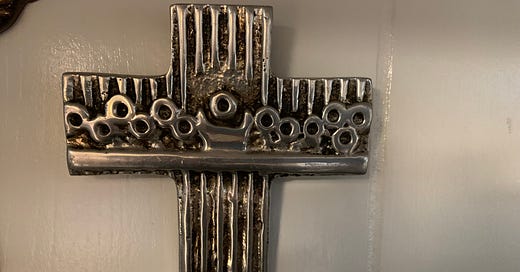



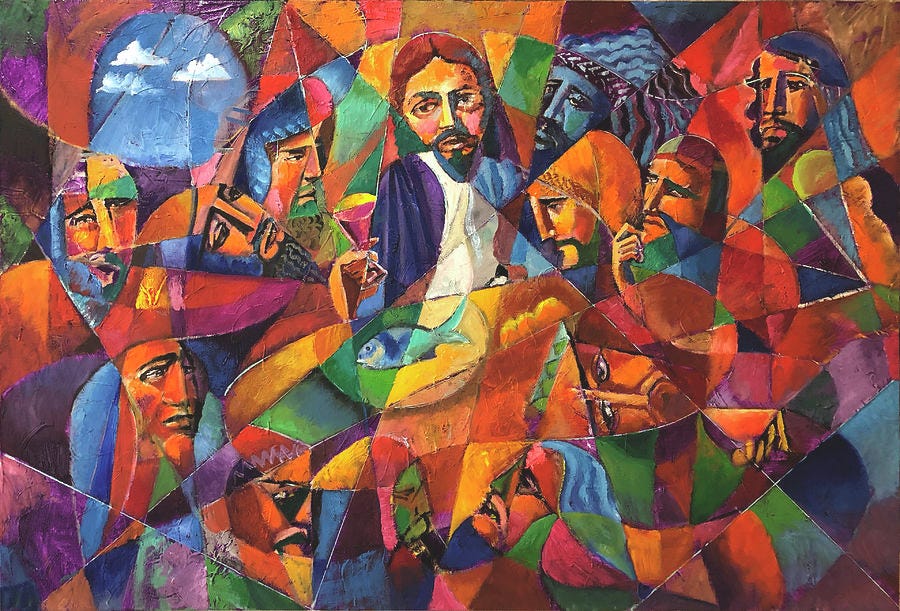
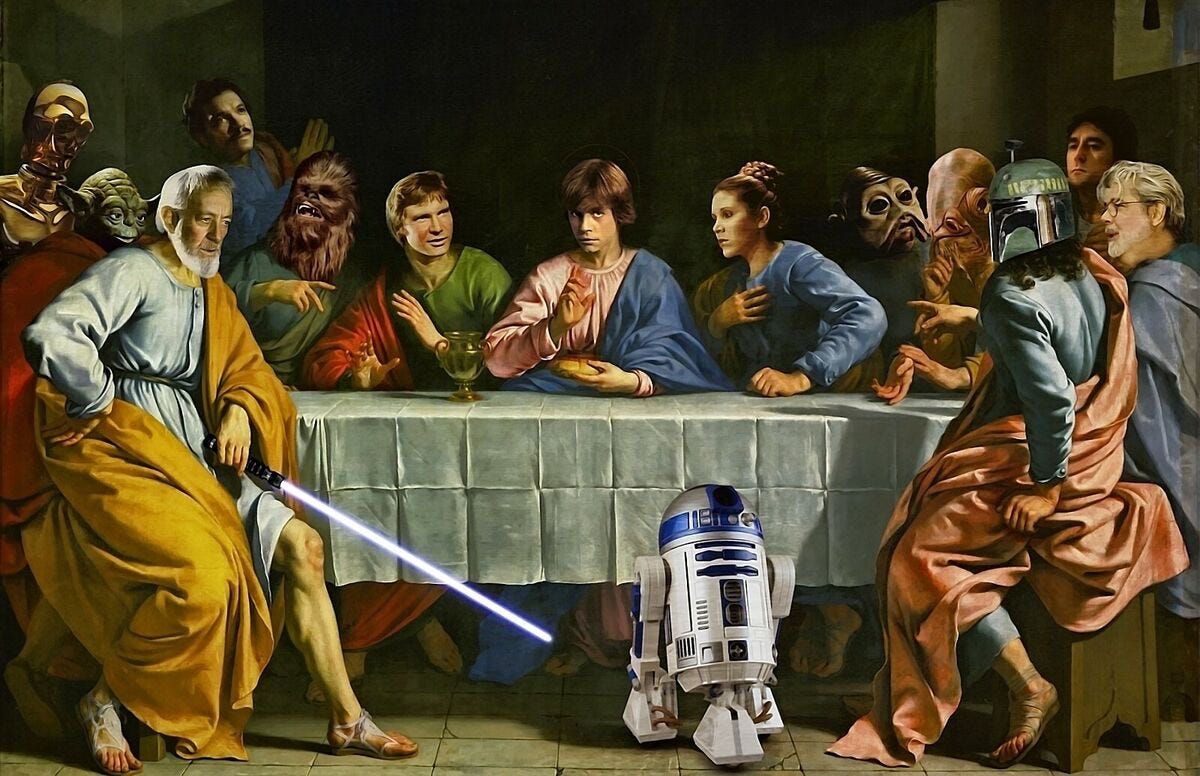
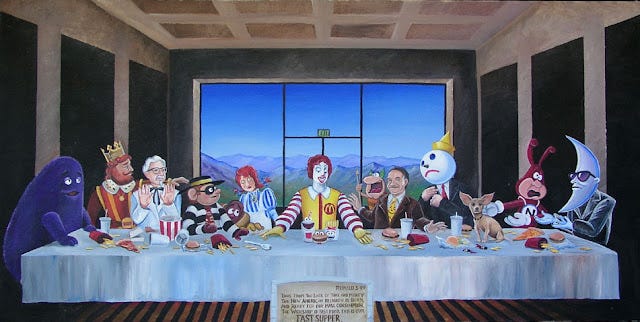
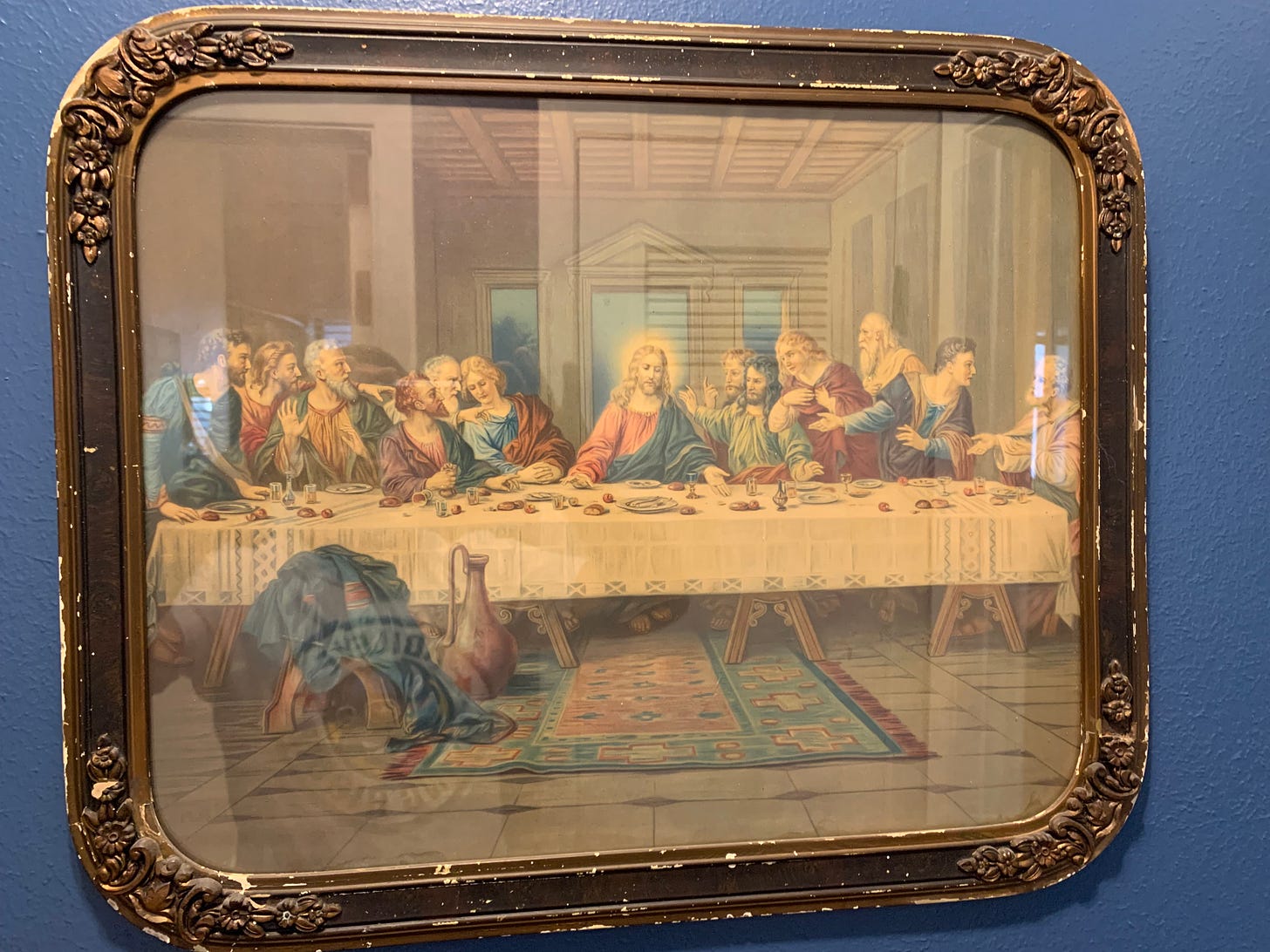
> Is the picture above an offense to God?
Tangent: I do not know a lot about art, but if the artist was capable of better (it seems likely that this was not really pasted together by a child from colored tissue paper and magazine photos, or something), then I'm going to go with "well, yes, of course it is".
Offending God does not and cannot harm Him (in His divinity; in taking on our humanity, Jesus desired to be able to suffer but I'm not going to follow that interesting line of thought right now). Therefore the reason that God ought not to be mocked or made light of or given unwanted leftovers (i.e. putting oneself first) rather than our best is because this harms *us*. So then we should sit down for a moment and ponder: how is it that this harms *us* when we do these things? Or, how is it that it harms *me* when *I* do these things? In other words, I have concluded (by reasoning) that it *does* (because the things God forbids are those which harm us and the things God commands are those which are for our greatest good); but (to me) this then raises more questions, which I would probably have to take to prayer, asking the Holy Spirit to clue me in.
I think the refracted pastel image is beautiful! Who is the artist?